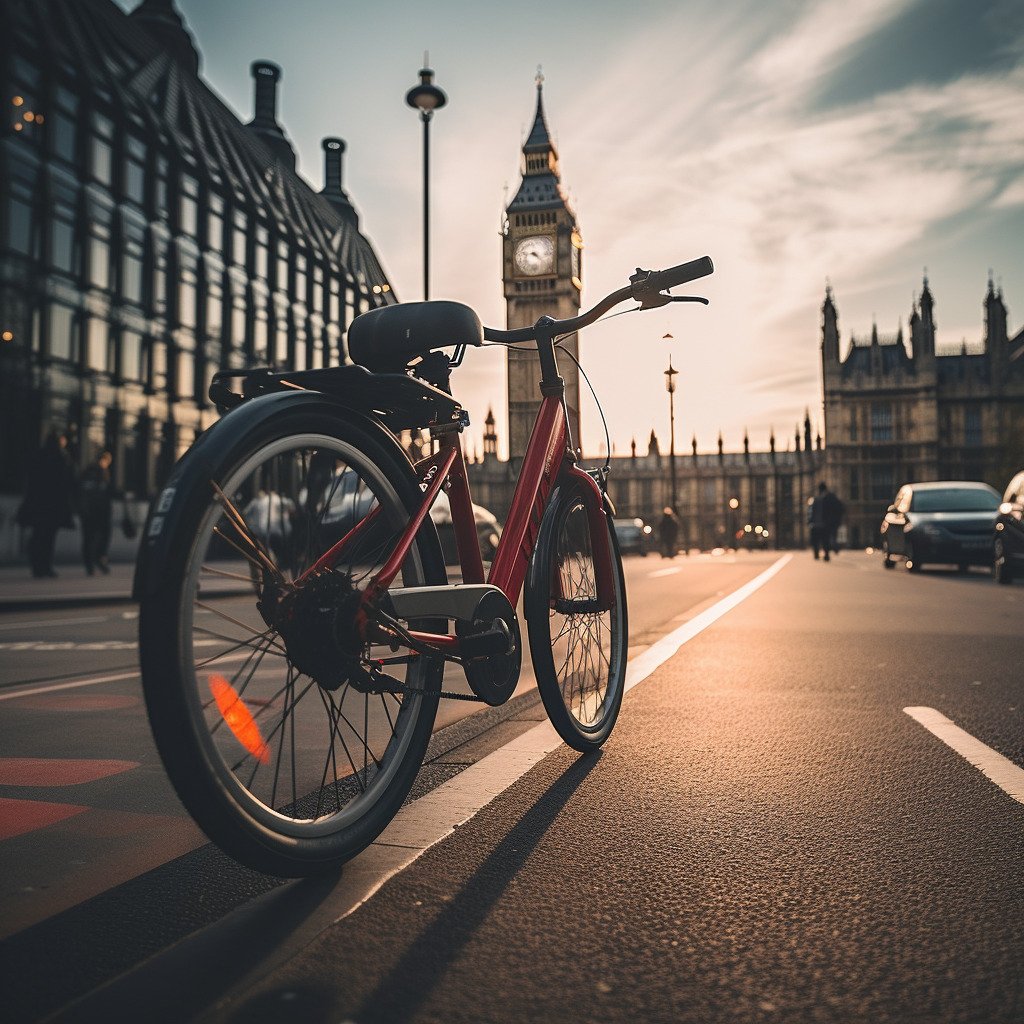
The popularity of electric bikes (e-bikes) has skyrocketed in the UK, but the rapid rise has also caused confusion around the legality of where, when and how you can ride them. This comprehensive guide examines the most recent 2023 e-bike laws in the UK, so you can feel fully confident riding your e-bike legally.
What Qualifies as an Electric Bike in the UK?

According to UK law, an e-bike must meet certain requirements to be considered road legal:
- Has pedals that can propel it
- Has an electric motor less than 250 watts
- Motor assistance cuts out at 15.5mph
- Motor assistance must require pedaling
Provided the e-bike meets these criteria, it is treated as a normal bicycle under UK traffic laws. Any two-wheeled e-bike that exceeds a 250 watt motor or 15.5mph assisted speed is legally classified under e-bike speed pedelec rules.
Where Can You Ride an E-Bike in the UK?

Standard e-bikes that meet the criteria above can generally be ridden wherever regular bicycles are permitted, including:
- Roads – Regular e-bikes are treated as normal bikes under Highway Code cycling rules.
- Cycle paths – On paths designated for bike use.
- Bridleways – Permitted provided cyclists are also allowed.
- Canal towpaths – Must be sanctioned for bike use by the canal authority.
E-bikes are also allowed on other paved surfaces like parking lots, drives and private roads.
Where Are E-Bikes Restricted in the UK?

While generally allowed anywhere regular bikes can go, standard e-bikes are prohibited from certain areas, including:
- Motorways – Illegal for any cyclist.
- Pavements – Riding on sidewalks is banned unless specifically sanctioned.
- Off-road trails – Often restricted unless explicitly permitted.
- Some private properties – Check landowners’ access rules.
- Public transport – Varies by agency; folding e-bikes may qualify as luggage.
Always check signs to confirm bikes or e-bikes are allowed before entering any paths or private properties. Also note that Transport for London restricts e-bikes access on some routes during rush hours.
Do You Need Insurance to Ride an E-Bike in the UK?
There is no legal requirement to have insurance for standard e-bikes in the UK. However, experts strongly recommend taking out coverage. Cycling insurance can provide protection in case of theft, damage, or legal claims in accidents. Compare policies from providers like E-Bikes UK that are designed for electric bikes.
E-Bike Helmet and Lighting Requirements

While helmets are not mandated under UK law, their use is highly recommended for safety. Front and rear lights are required after dark under normal Highway Code lighting rules. At least one must be a steady white light up front, and a red rear light plus reflectors in back.
E-Bike Speed Limits in the UK
On level ground, the motor on a standard electric bike in the UK will cut out at 15.5mph. You can continue pedaling faster than the cutoff, but with no motor assist. Different speed regulations apply in these scenarios:
- descents – E-bikes may exceed 15.5mph going downhill.
- Road limits – Obey lower posted speed limits on roads and paths.
- Up to 28mph – Allowed on private property with landowner permission.
- Higher speeds – Require registering as an electric moped.
Note that e-bike speed pedelecs capable of accelerating to 28mph can only be ridden on roads, not cycle paths.
E-Bike Rules for Younger Riders
In general, there is no minimum e-bike age in the UK. However:
- Children under 14 cannot ride on roads except on sidewalks.
- Riders 14-16 are advised to complete cycle training first.
- Trail and path access may impose age limits.
- Younger kids should ride under adult supervision.
Ensure kids can properly control an e-bike before allowing independent riding. Safety is more important than abiding by minimum ages.
Registering, Licensing and Taxing Requirements
Standard electrically assisted pedal cycles (EAPCs) don’t require:
- Registration
- Licenses
- Tax
- MOT testing
No license, registration, tax or MOT is needed provided top assist speeds stay under 15.5mph. Faster electric bikes may require licensing as mopeds or motorcycles.
Future Laws Around E-Bikes in the UK
With e-bikes soaring in popularity across the UK, changes to laws and policies are likely to accommodate their increased adoption. Potential updates in coming years may include:
- New speed regulations
- Expanded access to motorways and highways
- Wider age allowances for independent riding
- Insurance requirements
- Safety mandates like helmet or high-vis rules
Stay up to date on legal changes published by the Department for Transport as e-bike popularity grows. Follow advocacy groups like CyclingUK that lobby for improved e-bike laws.
Obeying E-Bike Laws Keeps Everyone Safe
Following the most recent e-bike regulations helps ensure all riders stay safe and avoid fines. Always check for local restrictions before venturing into new areas on your e-bike. And monitor legal updates as technology and infrastructure evolves to integrate electric cycles into the transport network.




















